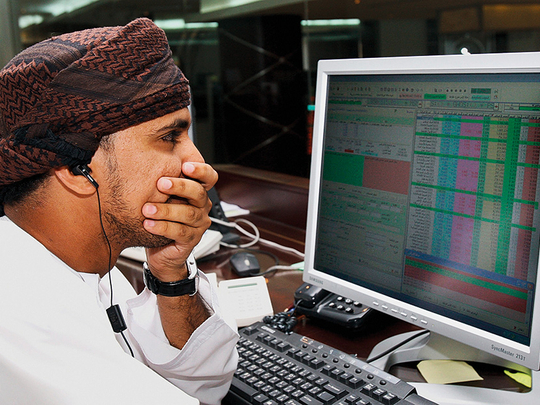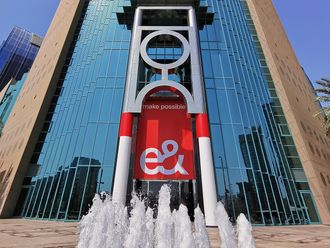
Dubai/Riyadh: Oman plans to sell $2 billion (Dh7.34 billion) of Islamic bonds this month as it seeks to trim a large budget deficit caused by lower oil revenue, Finance Minister Darwish Al Balushi said.
The crude exporter’s budget deficit will reach 12 per cent of economic output this year and it will continue to narrow in the coming years, Al Balushi said in an interview Wednesday in Jeddah, Saudi Arabia, on the sidelines of the Islamic Development Bank’s annual meeting.
“We are confident that our economy is heading in the right direction because the government has taken several measures for economic and fiscal reform,” he said. “These measures led to improvement in the fiscal situation and the government will continue to take more measures.”
Al Balushi added that privatisation is among the reforms being undertaken by the government, including public-private partnerships.
Oman’s budget deficit swelled to almost 21 per cent of gross domestic product in 2016, according to the International Monetary Fund. With smaller oil reserves and less of a cushion in government savings than its wealthier neighbours, Oman is one of the most vulnerable countries in the Gulf Cooperation Council as lower oil prices pressure state finances.
Last week S&P Global Ratings cut the sultanate’s credit rating to BB+, one level below investment grade, from BBB-.
The government has borrowed $5 billion this year, part of its three-year financing plan, and “preparation is already under way” for the $2 billion sukuk sale this month, Al Balushi said.
Oversubscribed debt
“We respect the opinion of S&P as a professional entity, but at the same time we are confident of the strength of our economy and we trust that the international financial market has a lot of confidence in our economy,” Al Balushi said, pointing out that debt issued by the government earlier this year was far oversubscribed. “We wanted to get $2 billion, the subscription was $20 billion and we took $5 billion only.”
Reforms undertaken by the government so far include “reducing and rationalising spending and increasing non-oil revenue through taxes and fees,” Al Balushi said. The government has also restructured subsidies for fuel, water, electricity and gas. Along with other GCC countries, Oman plans to implement a value-added tax.
“It’s true that in the past two years part of our reserves was used to cover the deficit,” Al Balushi said. “However, our reserves are still in a comfortable position.”
The Omani riyal’s peg to the dollar still “serves our economy and serves our situation in the near and long terms,” he said. “We don’t see any concern.”
Asked whether Oman would consider consolidating or merging state entities or sovereign funds, Al Balushi said the government “is continuing to review all financial and economic aspects, whether those related to investments or those related to improving returns of government assets inside or outside the country.”
“We are making each decision in its appropriate time after sufficient study, but the one thing we want to confirm is that we are going ahead with economic reforms,” he said.












